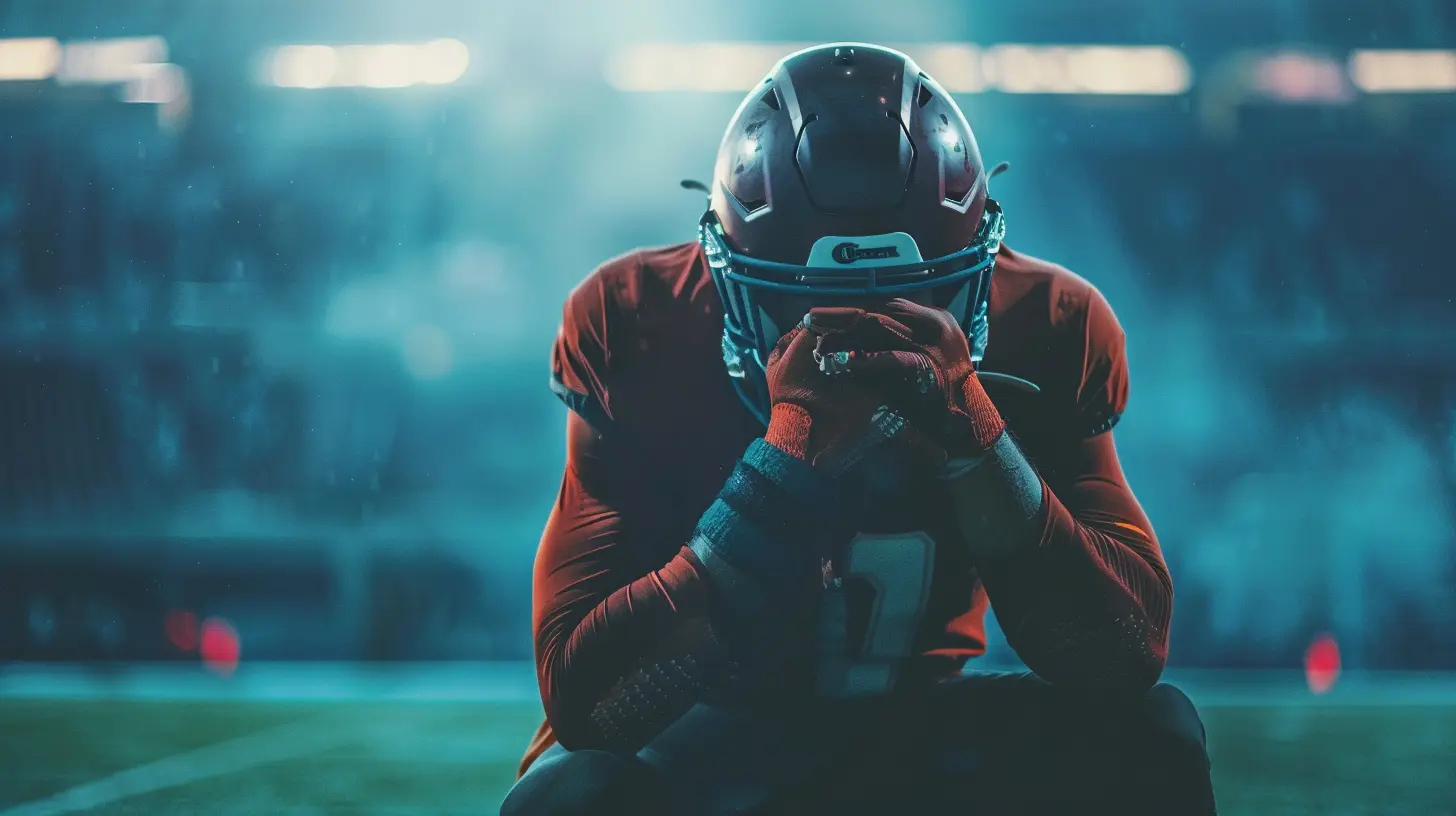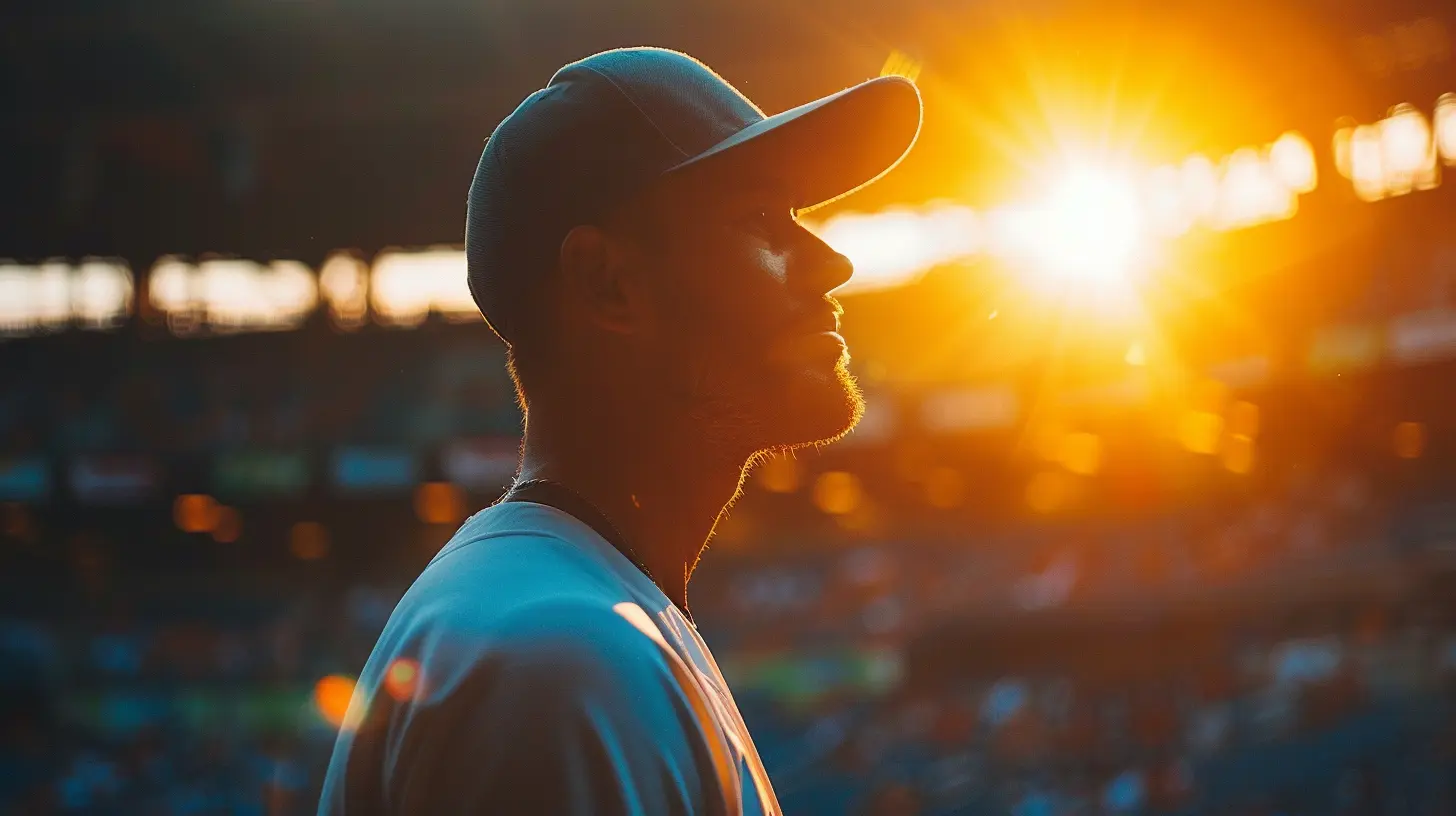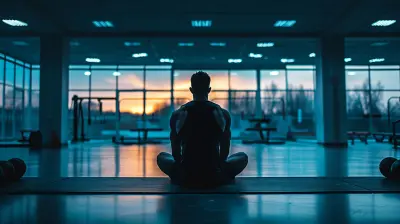How Mental Health Awareness is Changing the Conversation in Professional Sports
9 September 2025
Let’s face it, mental health was once the big, scary elephant in the locker room. Athletes, known for their grit, resilience, and perceived invincibility, were rarely encouraged to talk about their emotional struggles. But times are changing—and in a very big way.
Today, the conversation around mental health in professional sports is no longer whispered behind closed doors. It’s front and center, loud and proud. From press conferences to social media platforms, elite athletes are opening up like never before, and in doing so, they’re flipping the script on what it means to be “strong” in sports.
So, how did we get here? And what does this mental health movement mean for players, fans, and the sports world as a whole? Let’s break it down—because this subject is way overdue for its moment in the spotlight.
The Old-School Mentality: “Suck It Up and Play”
For decades, professional sports culture revolved around one golden rule: toughness above all else. If you were hurt, you taped it up. If you were tired, you pushed harder. And if you were struggling emotionally? Well… you were expected to silently endure it.Athletes were praised for their physical toughness but rarely—if ever—for their emotional openness. Cry in the locker room? Weak. Admit to anxiety? You're not “mentally tough.” This toxic narrative created an unspoken code: mental health struggles were seen as flaws, not as signs of being human.
But the cost was devastating. Hidden depression. Silent panic attacks. Addictions. Even tragedies.
That’s why what’s happening now is nothing short of a revolution.
The Tide Turns: Athletes Speak Out
You know the saying, “It only takes one person to start a movement”? That’s exactly what happened—only it wasn’t just one person.Athletes from across all major sports leagues began to brave the conversation. Consider NBA superstar Kevin Love, who wrote a deeply personal piece about having a panic attack during a game. His honesty pulled back the curtain on what many thought was impossible—that even elite athletes can struggle internally. Shortly after, others like DeMar DeRozan, Naomi Osaka, Simone Biles, and Michael Phelps shared their own battles.
And guess what? Their vulnerability didn’t make them less respected. It made them human—and it made fans love them even more.
Why Mental Health in Sports Matters…Like, A Lot
Let’s get real for a second. The pressure of being a professional athlete is unreal.Think about it: nonstop training, media scrutiny, fan expectations, social media hate, and the constant fear of injury or being replaced. Oh, and all of that under the bright lights of national television. It’s a cocktail for stress, anxiety, and burnout.
Mental health isn't a luxury for athletes—it's essential. Just like they train their bodies to perform, they need to care for their minds to keep going.
And it’s not just about performance. It’s about quality of life. Mental health challenges can lead to isolation, broken relationships, and far worse if ignored. Recognizing and treating these issues is no different from rehabbing a torn ACL—both are about healing.
From Silence to Support: How Teams and Leagues Are Adapting
The good news? Teams and leagues are finally catching up.Many franchises are now hiring full-time sports psychologists, mental health counselors, and wellness coaches. The NBA and NFL have both introduced mental health policies requiring each team to provide access to mental health professionals. The MLB has added mandatory mental skills programs. Even the traditionally stoic NHL is joining the conversation.
It’s not just lip service, either. Teams are building cultures where players are encouraged—not punished—for seeking help. Mental health days are becoming normal. Therapy sessions and mindfulness training are as important as weightlifting.
And here's the kicker: Many players say that working on their mental health has actually improved their performance. Who would’ve thought that being emotionally centered could help you shoot better or play smarter? (Spoiler alert: everyone.)
The Role of Social Media: A Blessing and a Curse
Social media has been both a spark and a sword in the mental health movement.On one hand, it’s allowed athletes to speak directly to fans—without the media twisting their words. When Simone Biles explained why she withdrew from Olympic competition, she did so in a way that felt honest, direct, and relatable. It allowed the world to see not just a gymnast—but a person.
But let’s not kid ourselves. Social media can also be brutal. The pressure to “perform” online, the trolls, the comparisons, the constant spotlight—it can be overwhelming. Athletes are expected to be role models, influencers, and entertainers, all while excelling in their sport.
That’s why it's even more vital that mental health remains a priority—because the digital age isn’t slowing down anytime soon.
Demolishing the Stigma: Young Athletes Take the Torch
What’s especially exciting? The next generation of athletes isn’t waiting around.High school and college athletes are growing up in a world where mental health is a normal part of the conversation. They’ve seen their heroes go to therapy and talk about it. They’re more open, more expressive, and more informed.
And they’re demanding better from coaches, schools, and sports organizations. They want environments where checking in mentally is just as important as warming up physically.
This ripple effect is changing everything. The old-school "man up" culture is being replaced with "speak up."
The New Definition of Strength
We used to think toughness meant silence. But now? Strength looks like seeking help when you need it. It looks like setting boundaries, opening up about trauma, and knowing when to take a break.Simone Biles stepping away from competition wasn’t weakness—it was wisdom. Kevin Love talking about panic attacks wasn’t soft—it was bold. These athletes are redefining bravery, and in doing so, they’re inspiring millions.
And let’s be real: Being mentally well is the ultimate competitive advantage. If your mind isn’t right, your game won’t be either. Plain and simple.
The Role of Coaches, Fans, and the Media
Let’s not pretend athletes can do this alone. The mental health movement in sports needs support from all sides.Coaches:
They set the tone. A coach who prioritizes mental health creates a safe space where players feel seen and supported. And when trust replaces fear, everybody wins.Fans:
It’s time we cut athletes some slack. They’re people, not robots. Cheer them on, but also show grace when they struggle. Remember: passion doesn’t have to come with pressure.Media:
Words matter. Let’s stop framing mental health breaks as “meltdowns” or questioning someone’s commitment. Create a narrative that uplifts, not one that shames.It’s Bigger Than Sports
Mental health awareness in professional sports isn’t just changing locker rooms—it’s changing lives.Because when young fans see their favorite athletes open up, it gives them the courage to do the same. It normalizes therapy. It makes checking in with your emotions feel less scary and more...well, human.
This movement is breaking down walls far beyond stadiums and arenas. It’s pushing mental health into everyday conversations. It’s helping men feel okay about crying. It’s helping women feel empowered to speak out.
And honestly? It’s about time.
So, Where Do We Go From Here?
We keep going. We keep talking. We keep listening.Mental health awareness in professional sports isn’t a trend—it’s a transformation. One by one, athlete by athlete, the stigma is crumbling.
And sure, there’s still work to do. But thanks to the courage of those who’ve spoken out, the next generation of athletes won't have to suffer in silence. They'll know it's okay to not be okay. They'll know getting help isn't a sign of weakness—it's a sign of strength.
So maybe now, toughness in sports isn’t just about pushing through pain. Maybe it’s about knowing when to pause, breathe, and ask for help.
That’s the kind of strength worth cheering for.
all images in this post were generated using AI tools
Category:
Professional SportsAuthor:

Onyx Frye
Discussion
rate this article
1 comments
Aisha Smith
Great article! It's inspiring to see mental health gaining recognition in sports.
September 27, 2025 at 4:19 AM

Onyx Frye
Thank you! I'm glad you found it inspiring. Mental health is crucial for athletes, and it's encouraging to see more conversations around it!


